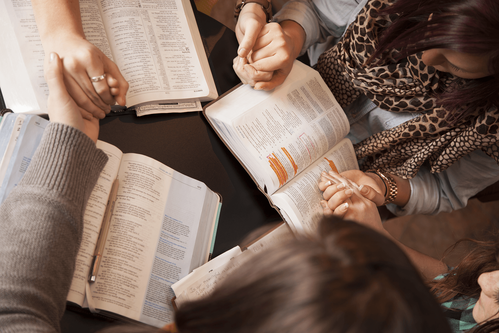
Discussion Questions for Families & Small Groups
From Sunday's teaching on Unity in the Body of Christ:
How does the concept of willingly placing ourselves under authority challenge our natural inclination toward independence and self-assertion in modern culture?
In what practical ways can we demonstrate unity of mind and sympathy toward fellow believers who hold different perspectives on non-essential matters of faith?
How does understanding that God hates what harms His people change the way we approach conflict resolution within the church?
What does it look like in daily practice to seek peace and pursue it rather than spending our energy on retaliation or revenge?
How can we cultivate brotherly love that goes beyond superficial kindness to genuine familial affection for those in our faith community?
In what ways might the church's struggle with moral failures and scandals actually reveal our need for the kind of ordered love described in this passage?
How does the knowledge that God is personally involved in every detail of our lives motivate us toward unity rather than division?
What is the difference between sweeping sin under the rug and extending grace to one another, and how do we maintain that balance?
How does the image of God's face turned in wrath against those who prey upon His people inform our understanding of His protective love for the church?
In what specific situations might we be tempted to respond with reviling for reviling, and what would it look like to bless instead?
Small Group Leader Guides are available upon request.
How does the concept of willingly placing ourselves under authority challenge our natural inclination toward independence and self-assertion in modern culture?
In what practical ways can we demonstrate unity of mind and sympathy toward fellow believers who hold different perspectives on non-essential matters of faith?
How does understanding that God hates what harms His people change the way we approach conflict resolution within the church?
What does it look like in daily practice to seek peace and pursue it rather than spending our energy on retaliation or revenge?
How can we cultivate brotherly love that goes beyond superficial kindness to genuine familial affection for those in our faith community?
In what ways might the church's struggle with moral failures and scandals actually reveal our need for the kind of ordered love described in this passage?
How does the knowledge that God is personally involved in every detail of our lives motivate us toward unity rather than division?
What is the difference between sweeping sin under the rug and extending grace to one another, and how do we maintain that balance?
How does the image of God's face turned in wrath against those who prey upon His people inform our understanding of His protective love for the church?
In what specific situations might we be tempted to respond with reviling for reviling, and what would it look like to bless instead?
Small Group Leader Guides are available upon request.
